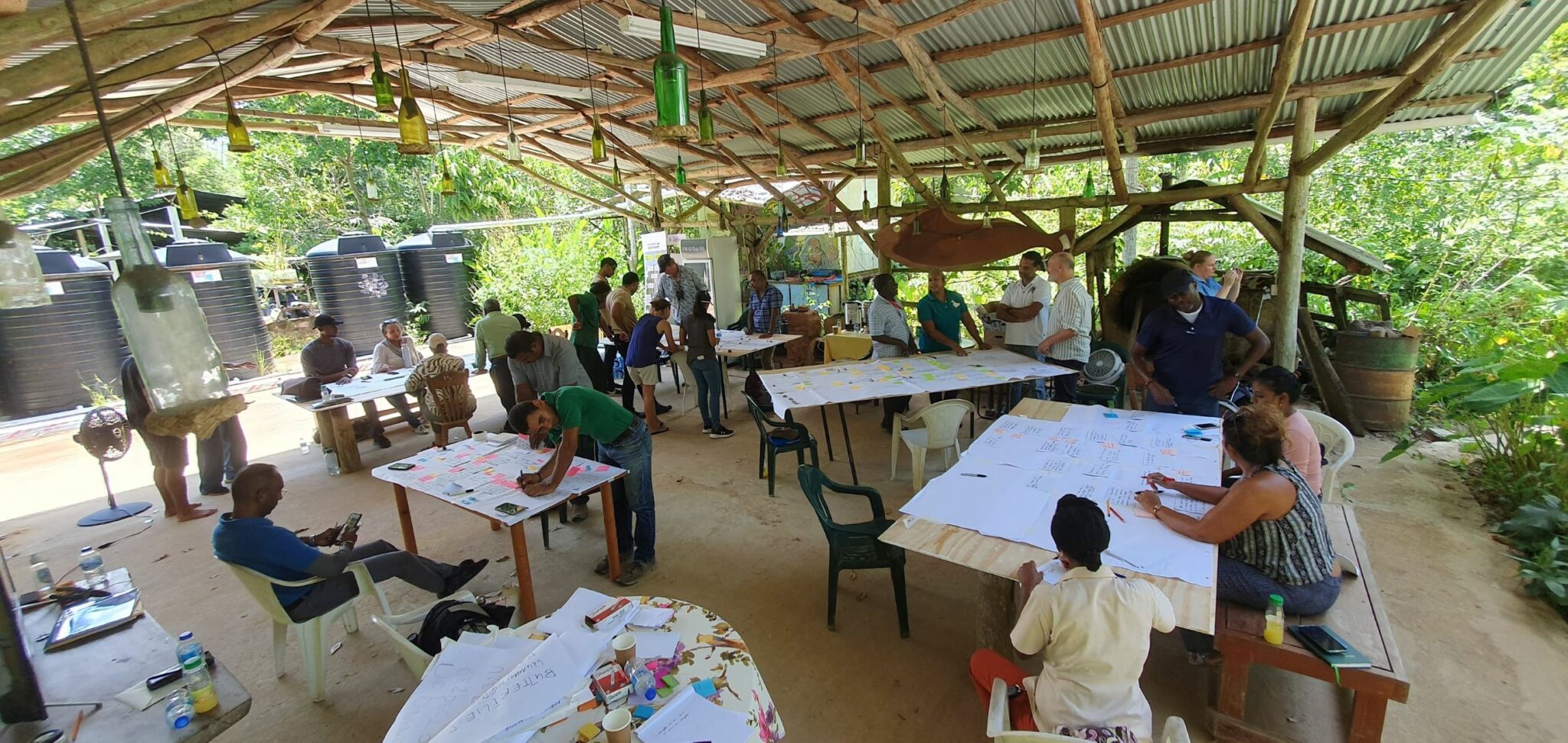Trinidad & Tobago’s Theory of Change
Workshop
For at least 14 of the 26 participants who took part in September’s Theory of Change workshop, the concept was a new one. Over the course of the three days, however, all attendees gained new knowledge of the process and value of this logic model and the steps involved in its development. The team of Martijn Thijssen from Promote Pollinators, Coalition of the Willing and Koos Biesmeijer and Marten Schoonman from Naturalis Biodiversity Centre effectively facilitated the workshop. They steadily guided participants to reflect and brainstorm on key outputs of relevant activities conducted in a coordinated fashion by key actors working together for the ultimate impact of pollinator conversation.

Day 1: Issues, Factors and Actors
On the first day the theory was explained giving an overview of the process. Using feedback received from a pre-workshop survey, the plenary was able to reflect on participants’ dream for pollinator management in Trinidad & Tobago, and then consider which were key factors that may impact (positively and negatively) on these dreams. Five categories of key factors were identified. After discussion, the plenary broke into smaller groups to craft an impact statement that was representative of the main dream, and then came together to look at the statements, voting and refining a single statement from the workshop.
Impact statement of Trinidad & Tobago: “Biodiverse islands where humans live in harmony with pollinators.”
Day 2: Impacts and Outcomes
On the second day, the group examined the five factors that were defined on the previous day and participants reorganized themselves into groups according to the key factor to which they were most aligned. The groups each used the main impact statement and defined outcomes aligned to that statement that are critical to be achieved when addressing that specific factor. This was a very drawn out exercise as the participants needed to be clear on the differences between outcomes and the activities and actors that are critical to achievement of the outcomes. This meant considering inherent assumptions and also ensuring that ‘cause and effect’ were clearly considered. Each group presented on its work to the plenary and then received and gave constructive feedback.
Day 3: Activities, Assumptions and Linkages
Groups defined the activities which lead to the desired outcomes. These included clarifications based on previous feedback. When this was concluded, groups gave second presentations of their updated flowcharts. Each presentation was physically laid out alongside the others, until at the end of all presentations, the huge output from all groups was revealed.
To be continued...
At the end of the workshop all participants and facilitators were applauded for their contributions. BES-Net TT will digitize the output and provide feedback to participants. The draft Theory of Change will be used for the development of the pollinator strategy of Trinidad & Tobago.
Theory of Change
The Theory of Change is a methodology to gain insight and overview of how change can take place. The methodology results in a diagram that shows how and why a desired change is expected to happen in a particular context. The Netherlands has used the Theory of Change successfully to further develop her own pollinator strategy in a participative process and to choose the relevant activities to achieve the outcomes and ultimately the impact. Want to know more about the Theory of Change? Click the button below.
